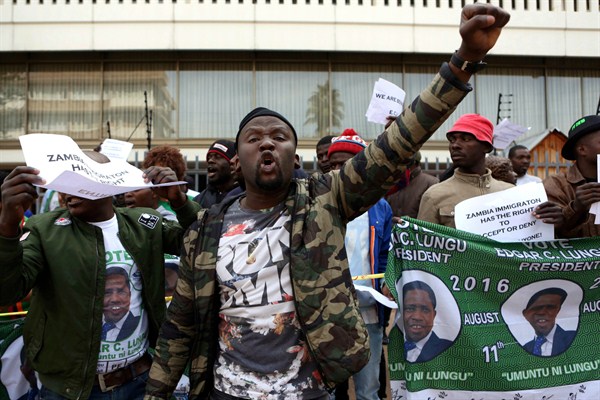When Hakainde Hichilema, Zambia’s opposition leader, was let out of prison last August, some analysts speculated that the news would herald a cooling of tensions in a country that had struggled to move on from its disputed presidential election in 2016.
Hichilema, the head of the United Party for National Development, or UPND, finished second in that race to President Edgar Lungu, who took office in 2015 after the death of his predecessor, Michael Sata. But Hichilema challenged the result, just as he challenged the 2015 by-election that had permitted Lungu to serve out the remainder of Sata’s term.
The hostility between Hichilema and Lungu peaked nearly a year ago, following a curious incident in the west of the country in which the two men’s motorcades nearly collided on a potholed stretch of road. This became the immediate source of Hichilema’s legal trouble and led to his incarceration, as Zambian authorities accused the opposition leader of endangering the president’s life by refusing to yield, ultimately charging him with treason.

